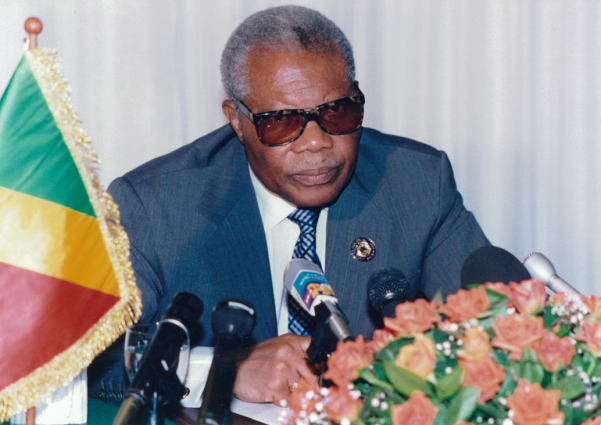Dislodged from power in 1997 at the end of a civil war led by Denis Sassou-Nguesso, the former head of state died in Perpignan at the age of 88.
Former Congolese President Pascal Lissouba died Monday, August 24 in Perpignan, France, at the age of 88, his party, the Pan-African Union for Social Democracy (Upads), has learned. He had led the Republic of Congo from 1992 to 1997.
“With a heavy and wounded heart, I announce the death this Monday, August 24, 2020, of my father, Professor Pascal Lissouba, former president of the Republic of Congo, at his home in France,” wrote on Facebook Jérémie Lissouba, son of President Lissouba and Congolese deputy.
Born on November 15, 1931, in Tsinguidi, in the Mayoko district (southwestern Congo), Pascal Lissouba was an agricultural engineer, holding a doctorate in natural sciences obtained in France in 1958. He served as Minister of Agriculture under the first President of independent Congo Fulbert Youlou (1963-1965), before becoming Prime Minister of Alphonse Massamba Débat in 1965-1966.
Elected in the country’s first pluralist elections
Founder of the Upads in 1991, Mr. Lissouba was elected President of the Republic in 1992 during the first pluralist elections in this Central African country. During his tenure, between 1993 and 1994, opposition challenges to the results of the legislative elections led to clashes between militias of opposition parties and those of the presidential majority, resulting in some 2,000 deaths.
From June to October 1997, fighting in the capital, Brazzaville, pitted the militias of Pascal Lissouba and his last prime minister, Bernard Kolélas, against those of General Sassou-Nguesso, the current president of the Republic, supported by Angolan troops.
Victorious in this duel, Mr. Sassou-Nguesso regained the power he had lost on August 20, 1992, following the elections organized after the national conference. Between 4,000 and 10,000 people were killed in five months of violence. President Lissouba was then forced into exile in France. He was convicted of “high treason” and “conspiracy” against Denis Sassou-Nguesso.
Source: Le Monde































